A free program that helps students of limited financial need to pay for the costs of the application process to universities in the United States.
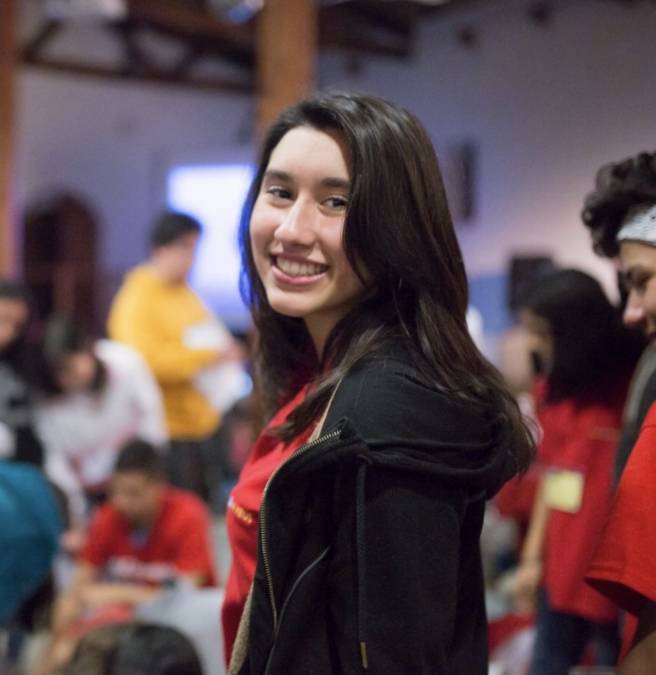
This program is free of charge and is targeted to high school students at the time of starting the program, with good academic performance, advanced English level and outstanding extracurricular activities; whose family income does not allow them to afford the application fee. The program provides FINANCIAL AID to cover the costs of the application, such as the preparation and cost of the required international exams, translations of the required documents, student visa expenses and international airfare, and others.
For each selected student, we provide personalized advice throughout the application process, so as to ensure that the universities to which the student applies in the United States provide sufficient financial aid, and allow the student to cover the costs of tuition, room and board during the four years of his or her studies.

The free program is divided into two phases. In the first phase, selected students will pay for the preparation and payment of the required standardized tests (SAT/ACT, TOEFL/ DUOLINGO/IELTS), the sending of the results to the different universities, certified translations of grades and letters of recommendation.
In certain cases, for students from the regions, round-trip transportation to the place where the standardized exams are taken is financed.
If the beneficiary of the program is accepted to a university and receives financial aid that covers most of the expenses (tuition, room and board) from an accredited U.S. university or college, Phase 2 of the program will pay for passport, SEVIS (international student registration), student visa, airfare, and a settling-in per diem.
If the student does NOT receive a full offer from an institution, he/she will not be eligible for any financial benefits under Phase 2.
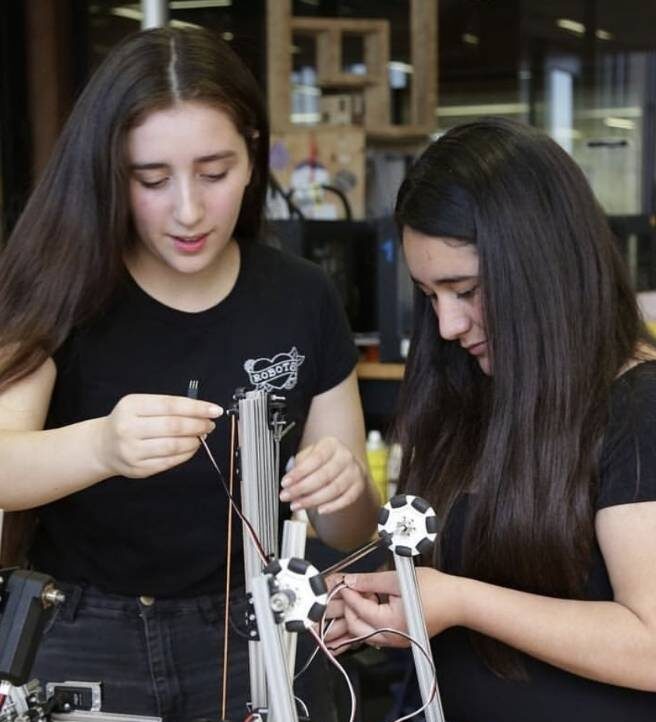
We are looking for competitive candidates who are in the top 10% of their class, involved in extracurricular activities or community service, ideally with a demonstration of leadership, excellence and commitment.
In Chile, the twelfth call for the free program will be open from November 2023 to January 12, 2024.

● Participation in the Competitive College Club
● Standardized tests (TOEFL/Duolingo, SAT/ACT)
● Books (paper or digital) for test preparation
● Transportation and accommodations for test-taking if necessary
● Application fees (application fees) CSS fee (financial aid application)
● Translation and mailing of academic documents
● Visa and SEVIS costs
● One-way airfare to the U.S. to the institution where the student will begin his or her studies.
●A one-time allowance for settling in the USA.
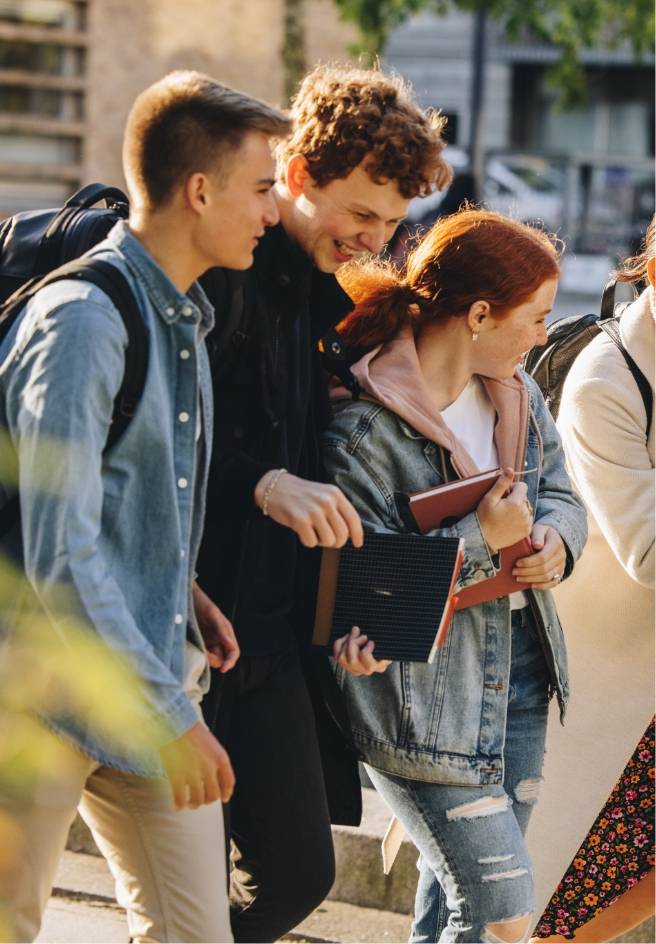
The selection process is done from the perspective of a U.S. college admissions office. First, the student must fill out the online form in English, well-written, and with all the information requested.
This allows us to get to know the applicant better and to check his or her writing style (which has an important role in the application process to universities in the U.S.). You must attach the requested documents at the end: ID, transcripts, proof of income of your parents, etc.
After all applications have been read, the committee invites the shortlisted candidates to a virtual interview in English. The interview is an opportunity for the committee to get to know them better and ask questions. Based on the interviews, students are selected for the next stage, which consists of a virtual English test.
Students selected at each stage will be notified by email. If no notification is received, it means that unfortunately they do not move on to the next stage. The parents or legal guardian of the selected student must agree to their participation in the program.
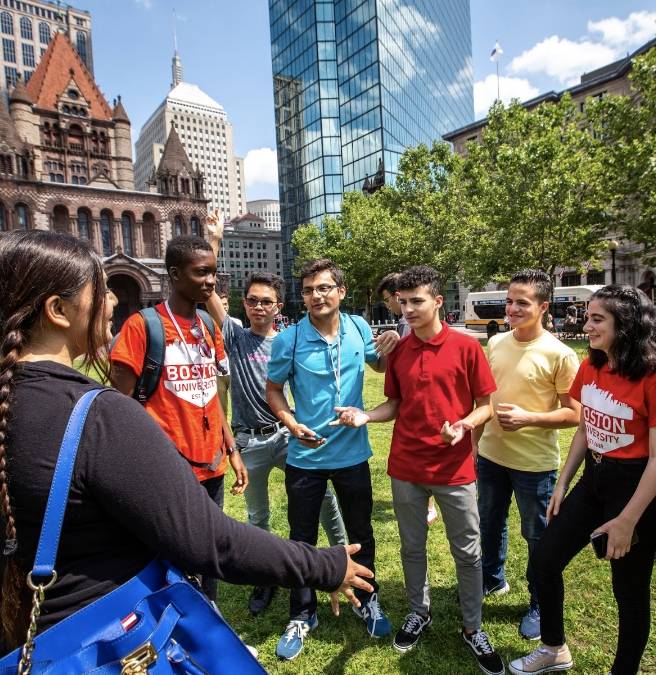
Documents required in addition to the application form:
● Simple photocopy of identity card.
● Simple photocopy of the school transcript for each year of high school.
● Documentation certifying the income of BOTH parents.
● Others depending on your situation
Selection calendar:
November 13, 2023 – January 12, 2024: application period.
January 12- 16, 2024: evaluation of applications (1st stage)
January 16, 2024: Notification and scheduling of interviews with selected candidates.
January 17 – 31, 2024: Virtual interviews in English (for those selected for 2nd stage)
February 5 – 8, 2024: Online English language proficiency test (for 3rd stage selectees)
March 5 – 8, 2024: final selection (by regional committee)
April 11, 2024: Start of the Competitive College Club
Skidmore College
Harvard College
University of Chicago
University of Southern Florida
Lehigh University
Smith College
Unfortunately, yes, only students who will be in their 4th year of high school in 2024 can apply. Students who are currently in their 4th year of high school in 2023 or students who graduated in 2022 and have not attended college may apply as a special case to our Undergraduate College Club.
There is no maximum income. We look at each family’s financial situation, including debts, medical expenses, number of members/dependents, savings, etc. and from there we evaluate whether the family is able to afford the application process.
The scholarship is for students whose families would not be able to afford the application process without our help.
No, the program does not accept students with U.S. citizenship.
You must already have a permanent visa to apply.
These careers are not considered for reasons of degree validation and authorization to practice. For example, Medicine is considered a graduate degree in the United States, with a very high tuition cost and with very few places for international students, in addition to having no guarantee of validation. Another example is Law, which is also studied as a graduate degree in the U.S. and cannot be validated here in Chile, since you would have to study the degree again to practice as a lawyer.
You need a copy of your identity card, transcripts for each year of high school, a document that verifies the income of the parent or legal guardian (paycheck stub, letter from employer, etc.), and others depending on your family situation.
You can request a copy from your school or from the website of Mineduc here (click)
The best option is to upload the SII document showing your taxes for the last year.
However, there is a space on the form where you can explain the situation. If you cannot get the taxes and mom/dad/legal guardian does not work, you can upload a notarized letter certifying your employment status and monthly income.
Extracurricular activities include in-school and out-of-school workshops, such as olympics, robotics, out-of-school clubs, sports activities, art/music workshops, volunteering, science fair, Scouts, EdV, internships, among others.
The amount varies from year to year. Some students receive partial scholarships of various amounts, but about 40% receive a full scholarship. Winning a full scholarship is competitive and there is no guarantee. Colleges in the U.S. make the offer after you have applied to their institution.
In most cases, it is not necessary to go through an official validation process unless it is required for practice or requested by your employer. However, la Universidad de Chile is in charge of the recognition of foreign degrees.
We recommend reviewing the website and checking or contacting the College of the profession of interest. For example, if you want to study journalism, you can contact the Colegio de Periodistas de Chile to see if they have more information.
EducationUSA Advising Centers are in partner institutions, including binational cultural centers and local universities.
These centers share a common goal: assisting students and professionals in accessing U.S. higher education opportunities. EducationUSA advisers staff the centers, many of whom have first-hand experience studying in the United States

Our Offices
For your Interest
Follow Us

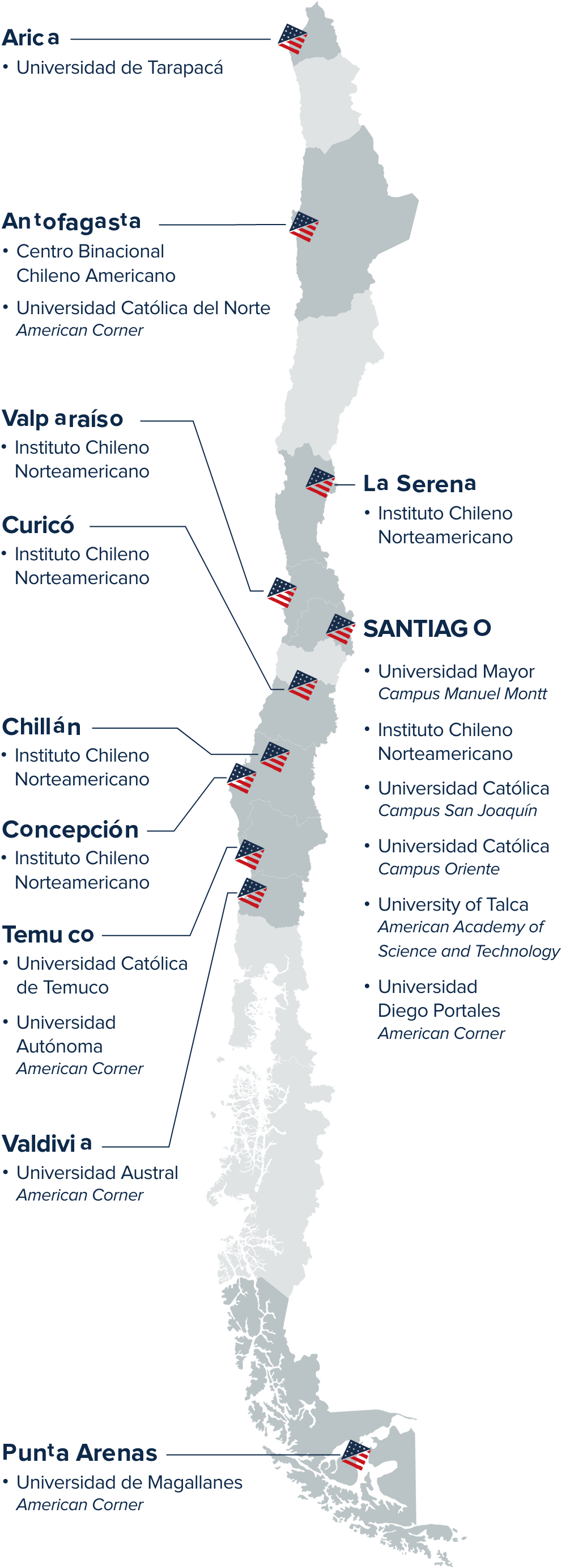
To provide the best experiences, we use technologies like cookies to store and/or access device information. Consenting to these technologies will allow us to process data such as browsing behavior or unique IDs on this site. Not consenting or withdrawing consent, may adversely affect certain features and functions.
1. American University Washington College of Law
2. Berkeley Law
3. Boston University School of Law
4. Columbia Law School
5. Duke University School of Law
6. Emory University School of Law
7. Florida State University
8. George Washington University Law School
9. Georgetown University Law
10. Georgia State University College of Law
11. Indiana University Maurer School of Law
12. Indiana University Robert H McKinney School of Law
13. LMU Loyola Law School, Los Angeles
14. Loyola Chicago
15. University of the Pacific, McGeorge School of Law,
16. New York University School of Law
17. Northeastern University School of Law
18. Northwestern Pritzker Law
19. Saint Louis University
20. SMU Dedman School of Law
21. St. John’s University
22. Stetson University College of Law
23. Suffolk University Law School
24. Syracuse University
25. Tufts University – The Fletcher School
26. Tulane Law School
27. UC Davis School of Law
28. UC Hastings Law
29. UCLA School of Law
30. University of Chicago Law School
31. University of Colorado Law School
32. University of Connecticut
33. University of Georgia School of Law
34. University of Miami School of Law
35. University of Michigan Law School
36. University of Minnesota Law School
37. University of Nevada- Las Vegas, William S. Boyd School of Law
38. University of New Hampshire Franklin Pierce School of Law
39. University of Pennsylvania Carey Law School
40. University of San Diego School of Law
41. University Of San Francisco
42. University of Texas School of Law
43. University of Virginia UVA
44. University of Wisconsin Law School
45. Vanderbilt Law School
46. Wake Forest University School of Law